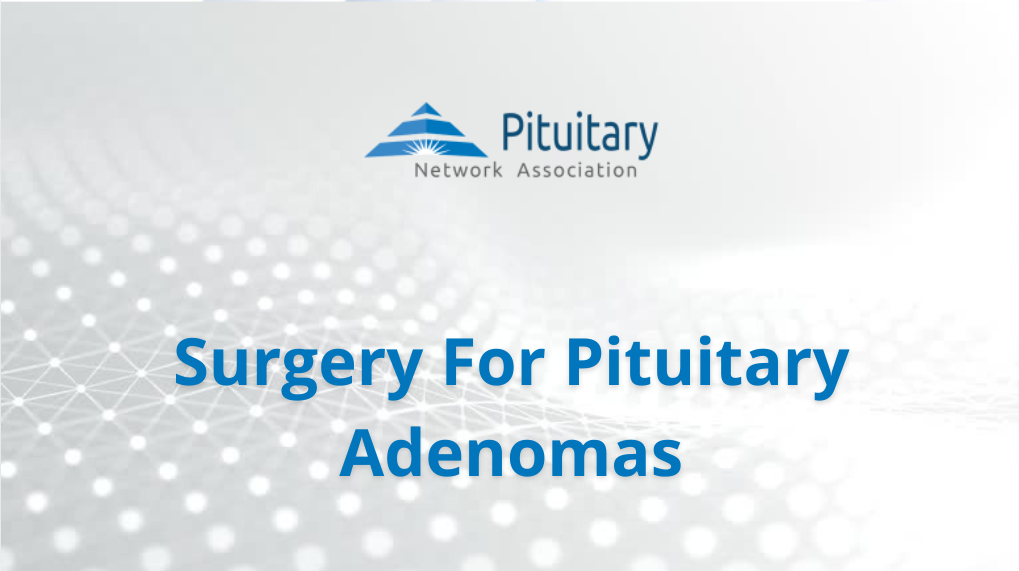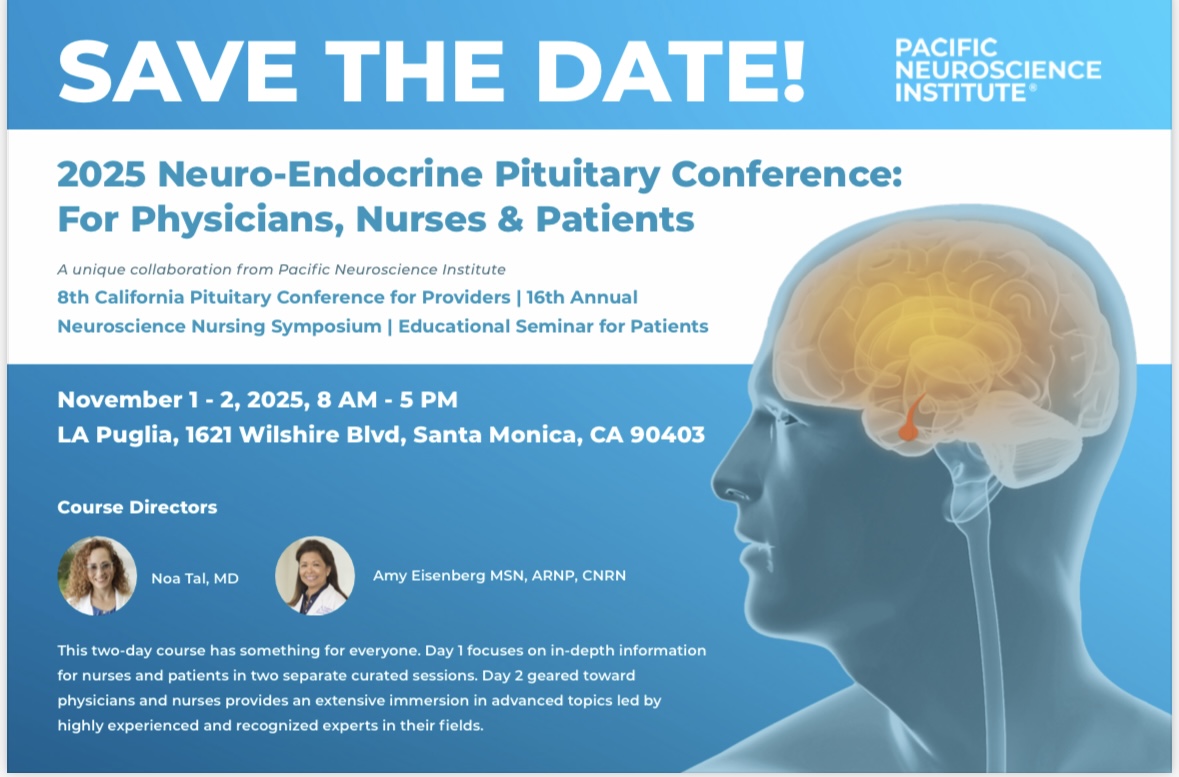Don’t Miss Our Exciting Upcoming Events!
Discover Leading Professionals and Specialized Services in Healthcare
Search
Recent Webinar
Patient’s Corner
Introducing Patient’s Corner, a place for you, the patient, to share your stories. If you have a story you would like to share please contact us below.
PNA Spotlight: Dr. Shaan Raza
This month the PNA Spotlight focuses on Dr. Shaan Raza, Professor of Neurosurgery and Neurosurgical Director of the Multidisciplinary Skull Base and Pituitary Program at The University of Texas MD Anderson Cancer Center in Houston. He is also Section Chief for Skull Base Surgery and Vice-Chair in the Department of Neurosurgery. He attended medical school at Johns Hopkins in Baltimore, where he also did a neurosurgery residency. Then he went to MD Anderson to do a skull base fellowship. Later he went to Cornell New York Presbyterian in New York City to do an endoscopic skull base fellowship. After concluding his training, he began practicing at MD Anderson. Dr. Raza was kind enough to answer some questions from the PNA. Here are his answers.
Please describe your practice.
I’m neurosurgical director of our multidisciplinary skull base and pituitary programs, and so my entire surgical practice focuses on skull base pathology, including pituitary pathology.
What inspired you to go into that field?
Specifically, within neurosurgery, I thought that the management of skull base and pituitary pathology was the most interesting from the standpoint that with the right treatments, you can really make an impact on patients in terms of their quality of life, such as restoring vision, restoring pituitary gland function, and improving survival. What also fascinated me about pursuing this area within neurosurgery is the tumor biology. We knew so little at the time when I was going through training compared to how much more we know now. It is such a rapidly evolving field. But also, I am interested in the surgical strategies, these highly intricate procedures that require an extremely thorough understanding of anatomy and require a lot of focus and intensity. With the right surgical strategies, you really can make a difference in patients’ lives. So for all those reasons, I wanted to be part of this evolving and innovative field.
Who truly influenced you? Who were your mentors?
I have had so many mentors who influenced me over the years, dating back to my time at Johns Hopkins. One who comes to mind is neurosurgeon Dr. Gary Gallia, who really brought endoscopic techniques to Hopkins while I was a resident there. The other person that influenced me while I was there was one of the endocrinologists, Dr. Robert Salvatori, who focuses on pituitary pathology. So, that was my initial introduction to pituitary pathology. I also had tremendous mentors, such as Dr. Ian McCutcheon at M.D. Anderson and Dr. Ted Schwartz in New York, where I did my endoscopic fellowship. He is a tremendous surgeon. Another mentor was Franco De Monte. I’ve been fortunate to have a lot of mentors who’ve really taught me about the art of being a physician, about being a good surgeon, a thoughtful surgeon, and understanding how to tailor treatment strategies to the individual patient.
Where do you think the whole field is going? Where are we going to be in 10 years?
It’s hard to predict. I think when you look at tumor biology for pituitary pathology, we’ll have a better understanding of the different subtypes, hopefully a better understanding in terms of the role of surgery, radiation and then newer systemic therapy agents/medication options for the different types.
Hopefully with heightened awareness of pituitary disease, we can get people to the right doctors and shorten the time between onset and diagnosis.
Absolutely. And along those lines, in terms of healthcare delivery for diseases such as this, patients will be sent to specialized centers, to give them access. The care delivery needs to innovate over time so that more patients have access to subspecialized care. We see this with surgical strategies and the ability to deal with pituitary tumors. Where previously, a gross total resection was not feasible, I think, this is going to improve and innovate over time with a better understanding of anatomy, surgical techniques, and incorporation of surgical technology. When I look at the management of recurrent tumors, I believe we are going to have more strategies there. In my practice at MD Anderson, I see a lot of patients who’ve had previous operations elsewhere, previous radiation therapy. So, managing patients who have recurrent tumors presents a whole other host of challenges. With regard to new surgical radiation medical strategies, I think that patient population is also going to evolve over time. And then I think overall, a lot of the data that we use to guide management strategies comes from smaller data sets, and so as different institutions work together and compile data together, I think we’ll have better evidence to guide treatment strategies.
What has been your involvement with PNA?
My involvement with PNA has been from educational standpoint. When patients come to me for an opinion, I typically connect them with the PNA as another source of information. I also keep track of the different research that your group also promotes. What I really appreciate about the PNA is that it’s a great resource for patients to get information from an experienced source and to be able to connect with other patients. I think that is extremely important, and certainly that kind of support improves my ability to take care of patients.
Is there anything else you’d like to discuss?
What I really emphasize is multidisciplinary care and to patient-centered care. Pituitary patients should seek out care at centers that not only provide the surgical expertise, but the endocrine and radiological expertise. Coordinated multidisciplinary care is what we really emphasize at MD Anderson, and deep expertise. I am proud of my colleagues, because everybody involved in the care of pituitary patients is specialized in that area; we don’t just dabble in it. And that expertise translates to better patient outcomes.
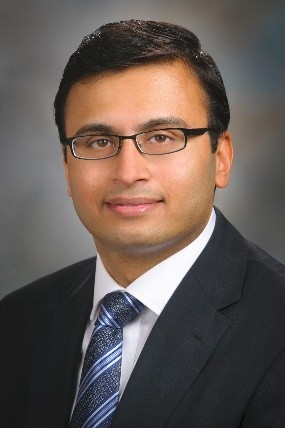
“What I really appreciate about the PNA is that it’s a great resource for patients to get information from an experienced source and to be able to connect with other patients.”
Get Involved
If you wish to donate, contact:
- P.O. Box 1958, Thousand Oaks, CA 91358
- Office: 805.499.9973
- Fax: 805.480.0633
- Email: [email protected]

Coming Events

Volunteer With Us
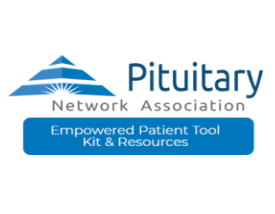
Pituitary Patient Toolkit
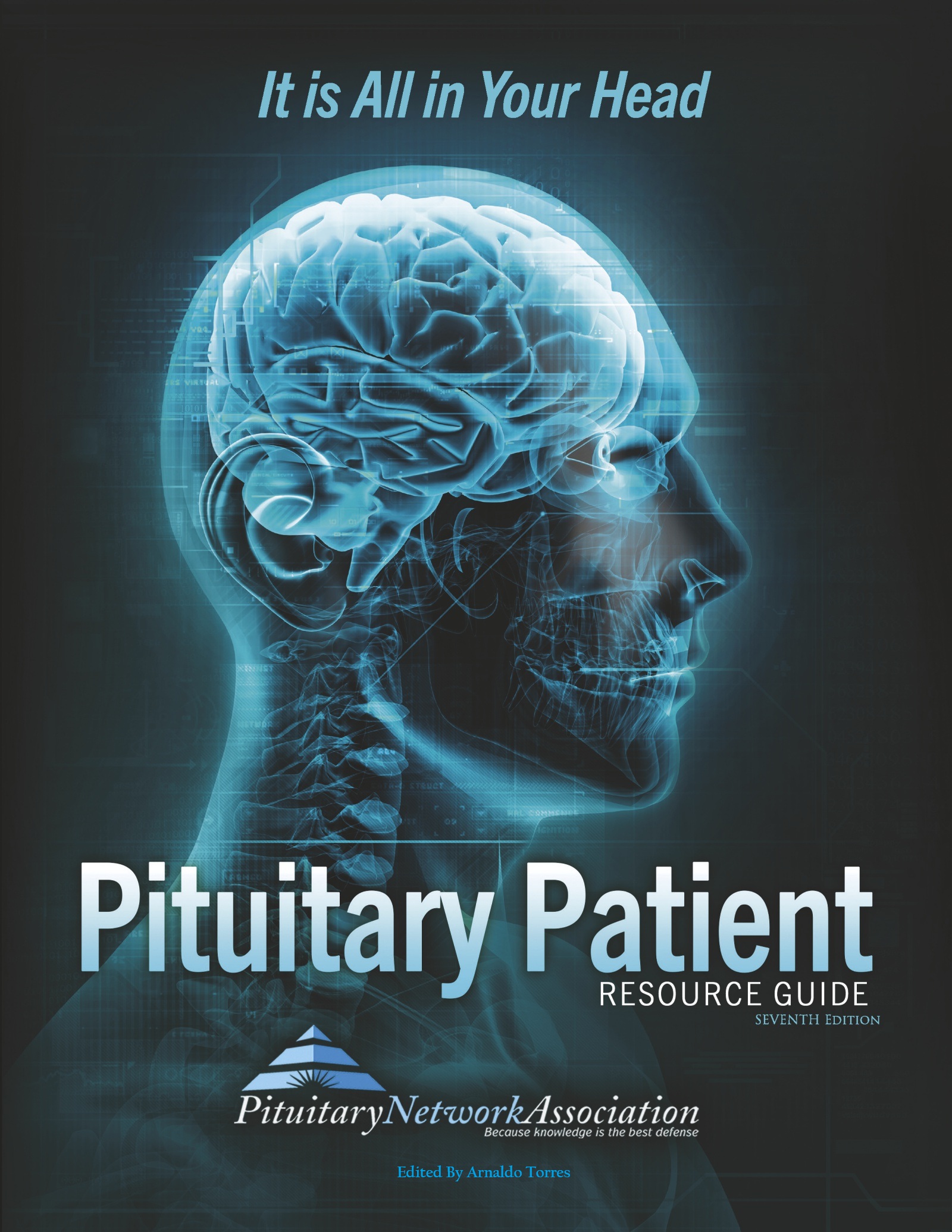
Seventh Edition - Now Available!
The Pituitary Patient Resource Guide Seventh Edition is now available! Be one of the first to have the most up-to-date information.
The Pituitary Patient Resource Guide a one of a kind publication intended as an invaluable source of information not only for patients but also their families, physicians, and all health care providers.
It contains information on symptoms, proper testing, how to get a diagnosis, and the treatment options that are available. It also includes Pituitary Network Association’s patient resource listings for expert medical care.
Latest News
News Articles June 2025
News Articles June 2025 New imaging tool to diagnose Cushing’s? An article in Cushing’s Disease News looks at a study that find that a new form of PET scan, alongside a CT scans can detect tumors...
PNA Highlights June 2025
“Let thy food be thy medicine and thy medicine be thy food.” – HippocratesPNA Spotlight: Dr. Shaan Raza This month the PNA Spotlight focuses on Dr. Shaan Raza, Professor of Neurosurgery and...
June 2025 Research Articles
Pituitary Tumors Effect of antineoplastic drug therapies on carcinoma and aggressive pituitary tumors: a systematic review and meta-analysis. Cardoso ABR, Zimmermann AC, Raverot G, Nunes-Nogueira...
